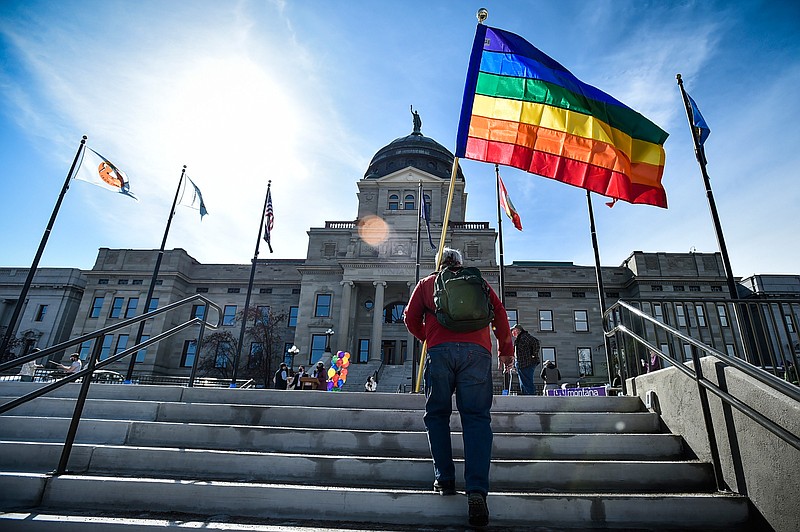A review of Division I schools by a national advocacy organization has found that 92% do not have fully inclusive policies for trans athletes.
Details of the Athletic Equality Index review were announced Monday by Athlete Ally, a nonprofit that advocates for LGBTQ athletes.
The NCAA has had a transgender inclusion policy in place since 2011, but the AEI indicates such policies are lacking at the school level.
The AEI also shows that 70% of Division I schools don't offer LGBTQ support resources targeted for student-athletes, and 80% of schools did not have a fan code of conduct that addressed harassment of athletes or spectators at school sporting events.
Anna Baeth, director of research for Athlete Ally, said that in addition to affirming LGBTQ-inclusive policies, the AEI can serve as a tool for young athletes looking at prospective colleges. Often, such policies are not readily available.
"We want it to be as transparent as possible because we wouldn't want an athlete to show up in a department - they get heavily recruited and then they show up and they're like, 'Actually, you know what? I'm not welcome here.' Or, 'Maybe I'm not protected here,' or 'Maybe legally I'm not protected in this state.' So those are the other layers of this that we're trying to think through: what does this mean for young athletes?" Baeth said.
Conservative lawmakers in more than 20 states have introduced legislation to ban or limit transgender athletes from competing on teams or sports that align with their gender identity. Laws banning transgender women and girls from participating in organized sports have been signed in Idaho, Mississippi, Tennessee and Arkansas.
Proponents of the legislation say the rules are needed to prevent biological males from dominating women's sports. However, NCAA rules require transgender women to take hormone-suppressing drugs for a year before competing.
President Joe Biden signed an executive order on the day he took office on Jan. 20 that bans discrimination based on gender identity in school sports and elsewhere.
In a letter to the Human Rights Campaign last week, NCAA President Mark Emmert affirmed the organization's commitment to diversity and inclusion.
"It is our clear expectation that all NCAA student-athletes will be welcomed, treated with respect, and have nondiscriminatory participation wherever they compete," Emmert wrote. "We are committed to upholding these principles and will continue to assess emerging laws to ensure student-athletes have fair opportunities."
Emmert also asserted that NCAA champion host sites must "demonstrate how they will provide an environment that is safe, healthy, and free of discrimination."
The AEI gives 10 schools a perfect score for LGBTQ equity policies: Arizona, Ohio State, Boston University, Kent State, Miami, Southern California, George Mason, UC Davis, Illinois Urbana-Champaign and Pennsylvania.
The AEI is a searchable public database. It is formulated based on an audit of publicly available materials from each Division I school, including athletic department websites, student-athlete handbooks and other policy-related resources.

